Hi,
This week’s lecture was all about ‘the self’, how we identify and what can influence this perception. Martin Hosken, a lecturer of Critical Theory at Falmouth University, led the lecture into ‘the human condition.
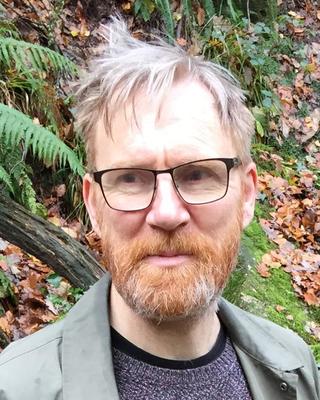
I have always seen myself as unique with my own personal traits. Martin begins the lecture by acknowledging that we, as humans, have a shared experience in the stages of life through birth to death. Albeit a fact that we were all born and will all eventually die, it is the journey that happens between which influences every decision we make from our choice of friends to the brand of crisps we eat.
But what about me? What is my core value and belief system? At this very point on the course I would say that I have strong family values and I am extremely proud of my local area. I abhor discrimination and have developed a strong resilience for everyday life.
In terms of the great ‘nature vs nurture’ debate, I feel that while I am a product of my parents, I have biological reasons for some of the ways I react. I do, however, feel that as I get older, I am more influenced by the people around me, the point at my journey I am at and the situation I am in.
The notion of ‘Nudge Theory’ resonated with me because of its links to the marketing and graphic design world. People are paid a lot of money to make conscious decisions which influences decisions in a subliminal way.
Edward Bernays was one of the first people to realise that people didn’t really buy products, they bought emotions linked with it. A great example of this, which I remember seeing as a kid, was the coca-cola adverts (below). They didn’t tell you about what it tasted or anything like that. Instead they sold the idea that men who drink coke would be attractive to the opposite sex and woman who bought their significant others coke, would instantly find them more attractive and encourage them to be like the man in the video.
“…the conscious and intelligent manipulation of the organised habits and opinions of the masses is an important element in democratic society. Those who manipulate this unforeseen mechanism of society constitute an invisible government that is the true ruling power of this country. We are governed, our minds moulded, our tastes formed, our ideas suggested, largely by men that we have never heard of. In almost every act of our daily lives we are dominated by a relatively small number of persons who pull the wires which control the public mind.” – Edward Bernays
Hosken continues to talk about the digital self and how we are becoming more invested in who we are as a digital entity. I wonder how many people’s Instagram profile pictures actually look like the owner? He aligns this thinking to a reward and response system in which we make quick decisions in order to feel some sort of acknowledgement.
Twitter’s character limit is 140 characters. Could you ‘live your best life’ in 140 characters?
As we move more and more towards a digital age it makes me wonder if the physical self is dying out and we are moving to a completely digital existence in which we can have many versions of ourselves?
Some final thoughts from me:
- So, the self is a continually changing facet of the human condition for which the individual is responsible.
- What has come before leads us in such a way that enables us to make quick and more thoughtful decisions.
- We are creatures of both nurture and nature and are influenced daily by conscious and unconscious influences.
- Our digital selves can be reinvented in multiple online social settings.
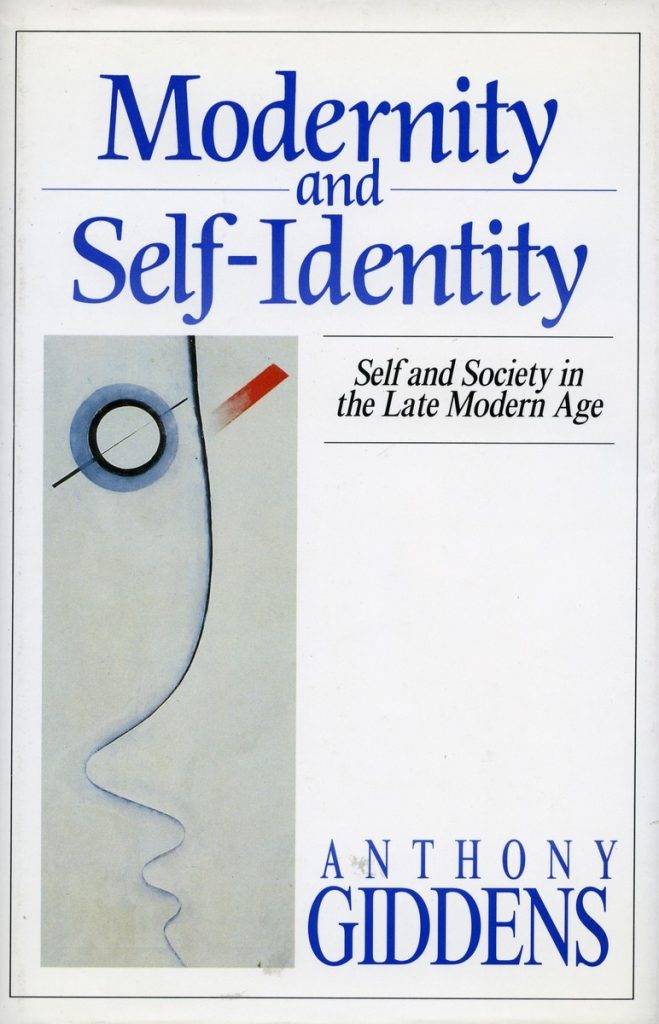
Self Realisation
What to do? How to act? Who to be?
These questions are ones that we all ask ourselves 100s of times a week without even realising it. From reading this week’s resource text it appears to me that we are all masters of our own destiny and have goals and aspirations which lead us to answer those questions in certain ways.
“Self-therapy is grounded first and foremost in continuous self observation.”
This autobiographical and self actualising approach is something which I have become quite good at. I have suffered with anxiety for most of my life and have learnt many coping mechanisms which include questioning responses and being self aware.
“Baumeister claims that in pre-modern times our current emphasis on individuality was absent.”
I have always been of the opinion that any future is completely possible given the right circumstances and determinations. However, this was not always the case and historically there was only a finite number of options available. It must be tough to think, “I want to be X” and then never be able to become that. I suppose it is lucky we live in a time with so many option available to us. Having said that, are there options that are still out of my reach? I am not sure I could become an astronaut for example…..or could I?
“We are, not what we are, but what we make of ourselves.”
The author talks about this self awareness as a positive thing where, “The world becomes full of potential ways of being and acting, in terms of experimental involvements which the individual is now able to initiate.” By better understanding yourself and why you make the decisions you do it allows you to take chances. It’s these chances which will allow you to, “explore new ideas and move along unfamiliar pathways”.
“…the selection or creation of lifestyles is influenced by group pressures and the visibility of role models, as well as by
socioeconomic circumstances.”
For me, this goes back to the nature / nurture argument and that there are many aspects of our lives which can influence our own identity. Our group of friends, our role models and how much money we have.
“Individuals adjust both appearance and demeanour somewhat according to the perceived demands of the particular setting.”
This follows the idea that individuals have ‘multiple selves’, which I believe is even more prudent in today’s society and the various social media platforms.
Workshop Challenge
How can graphic design enable you to communicate your core values at this moment on your course?
Understanding of your practice and your character, your values as a designer (aspirational, honest, negative). Make an initial list of 20 words you can then edit down to five words.
- Friendly
- Creative
- Family
- Passionate
- Determined
- Funny
- Resilient
- Helpful
- Sarcastic
- Fun
- Purposeful
- Refined
- Quirky
- Mental Health
- Rebellious
- Cheeky
- Loving
- Studious
- Proud
- Mindful
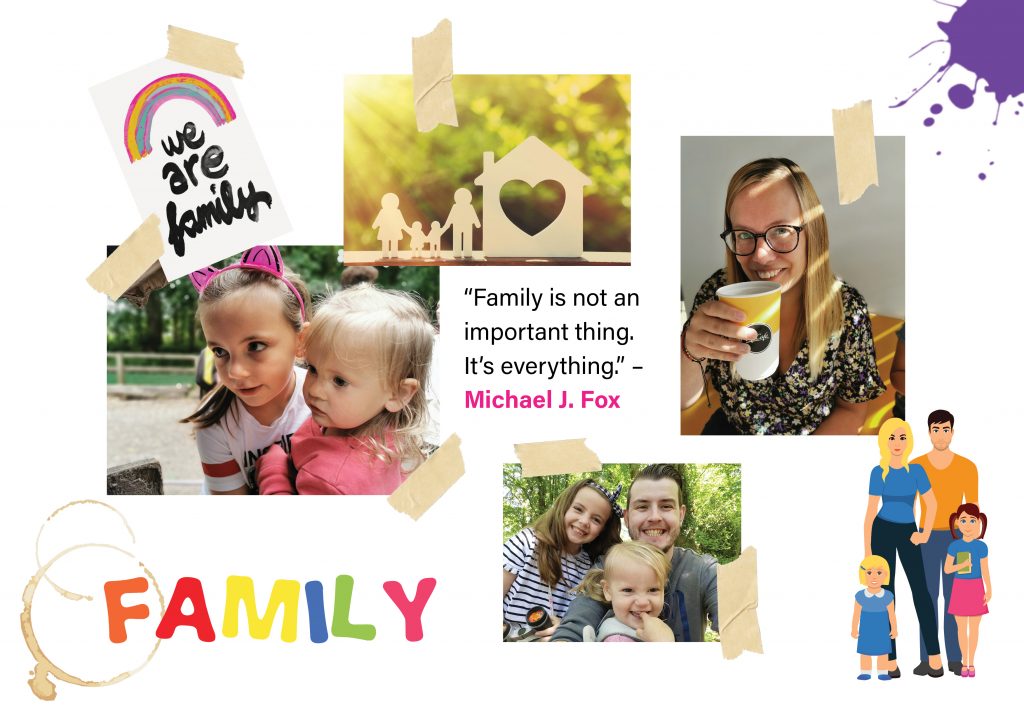
Family
I would argue that my family are the most important thing in defining who I am as a person. I am a father first and a Graphic Designer second. As a parent, most of my time is linked with caring for my two daughters and as such I don’t do much socialising.
I have included pictures of my family as well as a coffee stain (needed to survive!) and a paint splodge – kids are never clean!
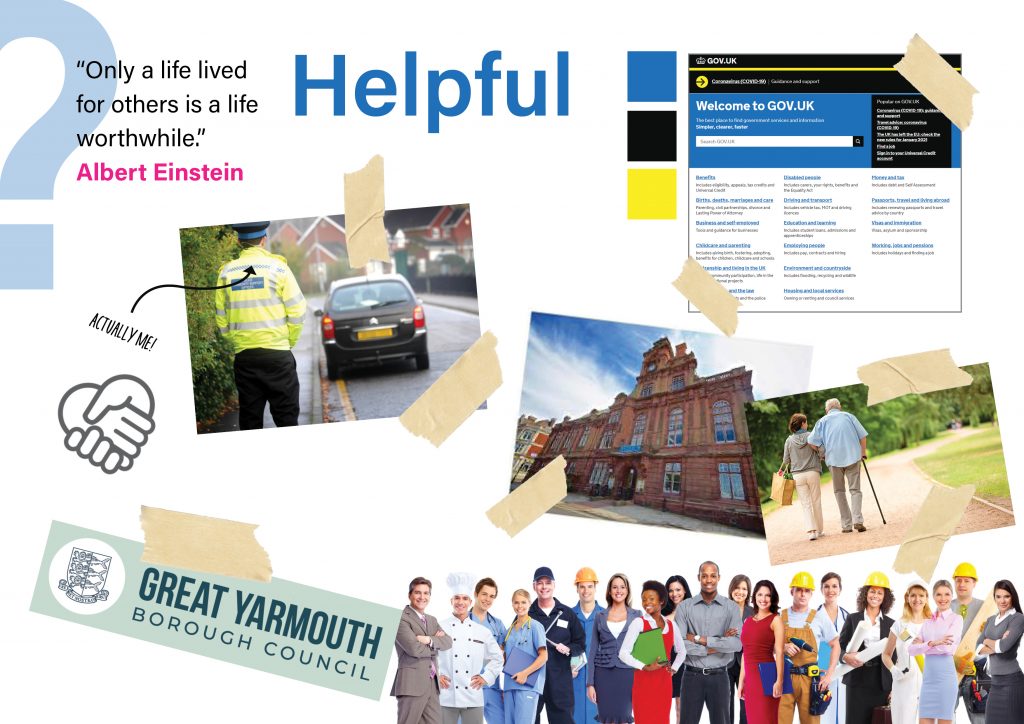
Helpful
When I was 20 I joined the Police and stayed in that role for 7 years. This instilled a sense of community pride and a willingness to help people. I was part of a team who looked after the minorities across Norfolk which allowed me to see a variety of people’s identities within their own lives. This ‘helpfulness’ continues today. I now work for a local council and try to help my local communities through successful communications.
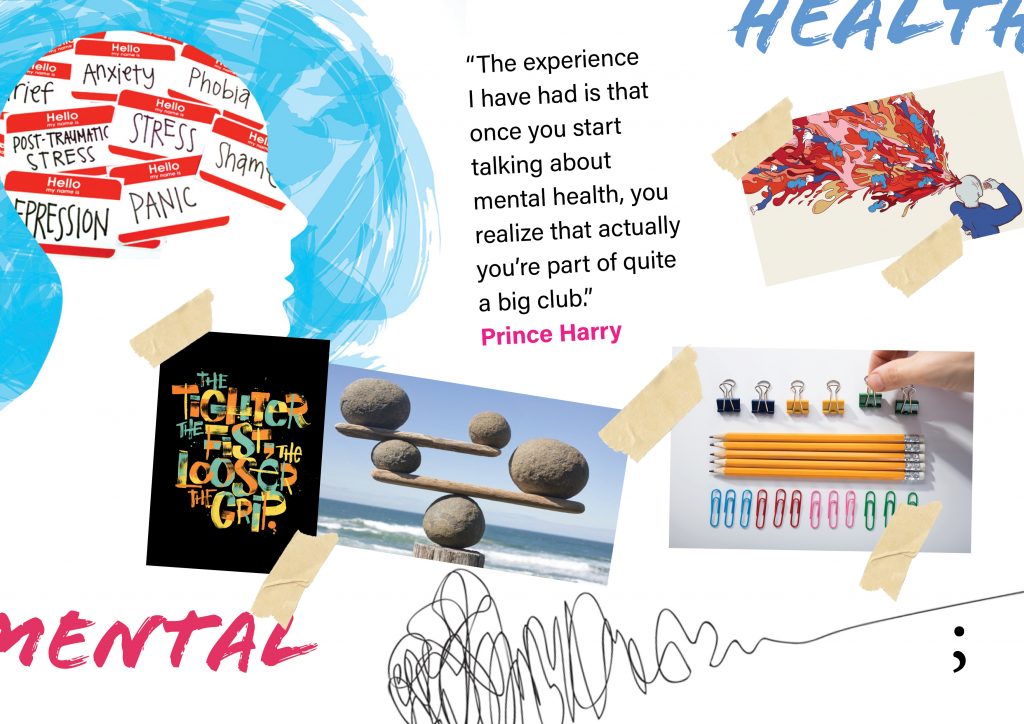
Mental Health
In my formative years I was diagnosed with anxiety and OCD. It used to be a struggle to accept this as part of my identity but feel, as I have got older, that it has also made me the person I am today. I feel that by having these conditions it allows me to be more empathetic and want to help others.
The font used in this one is a bit erratic and, with the scribble, shows that mental health can sometimes be a bit frantic.
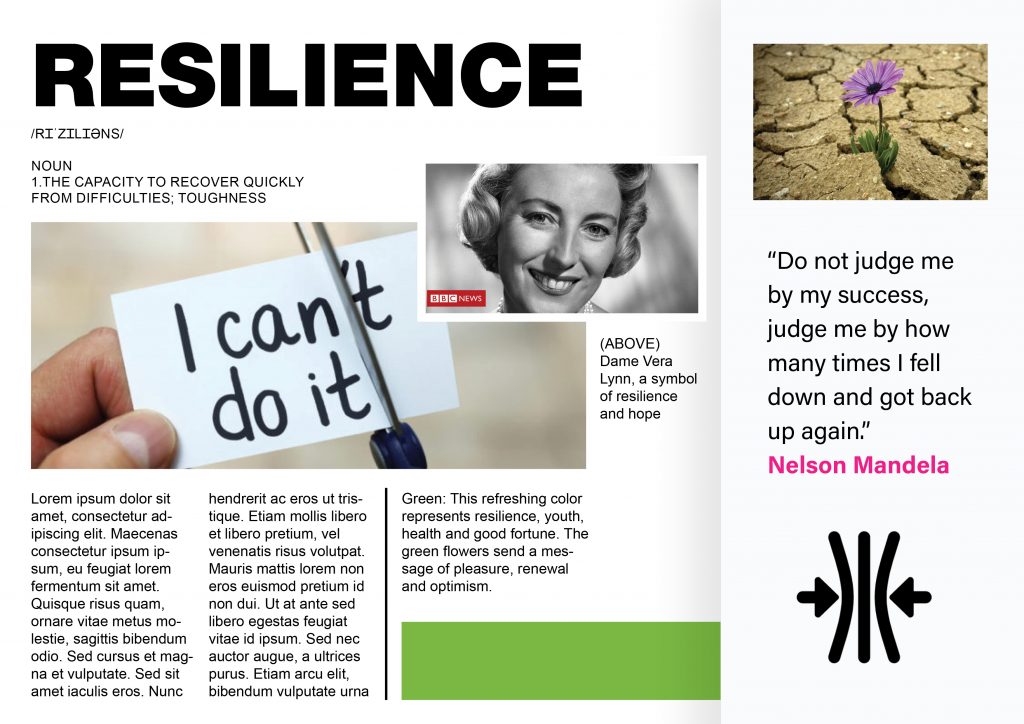
Resiliencce
In my formative years I was diagnosed with anxiety and OCD. It used to be a struggle to accept this as part of my identity but feel, as I have got older, that it has also made me the person I am today. I feel that by having these conditions it allows me to be more empathetic and want to help others.
I have included Lorem Ipsum placeholder text as it truly has lasted the test of time. Vera Lynn and the flower in the desert symbolise a desire to never give up.
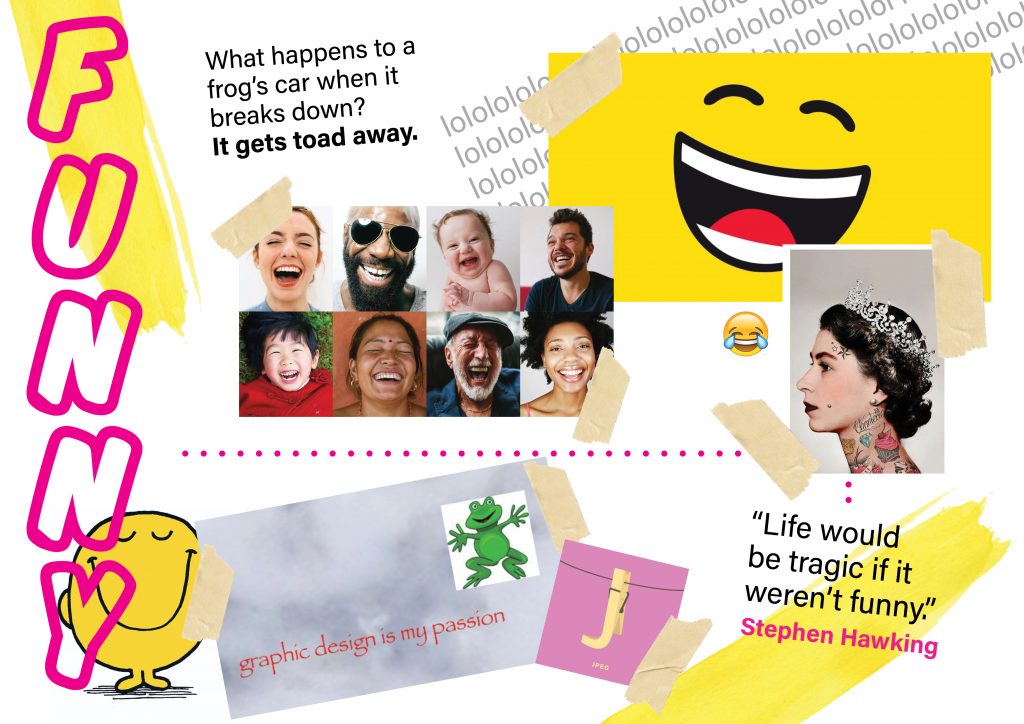
Funny
What’s life without a laugh? Humour has always been important in my life and have tried to express that in the above mood board.
I have used memes, jokes and emojis to show my funny side. I cant even look at this board without smiling, which has got to be a good thing, right?
The Plan
Create a single visual expression that conveys you (eg a film, 3D, typographic, an artefact or an experience).
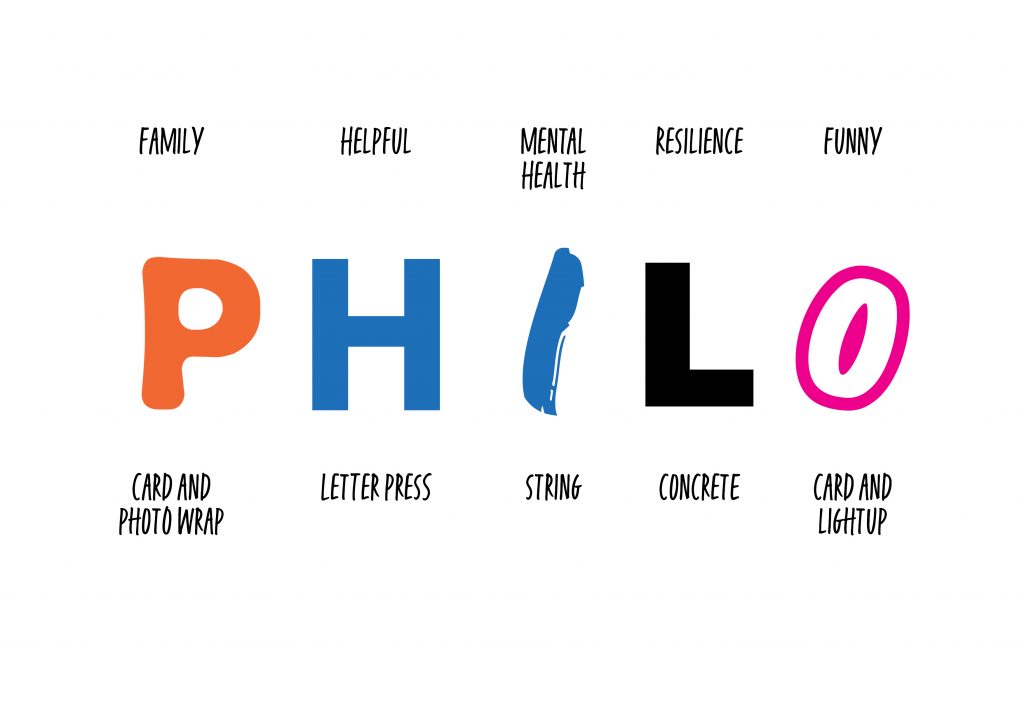
So, the plan is to create 3 dimensional characters of my name – each one to represent one of the 5 words I have chosen to identify and define who I am. I will make each character unique and apply a style which represents the words in a visual form.
The Ideas Wall
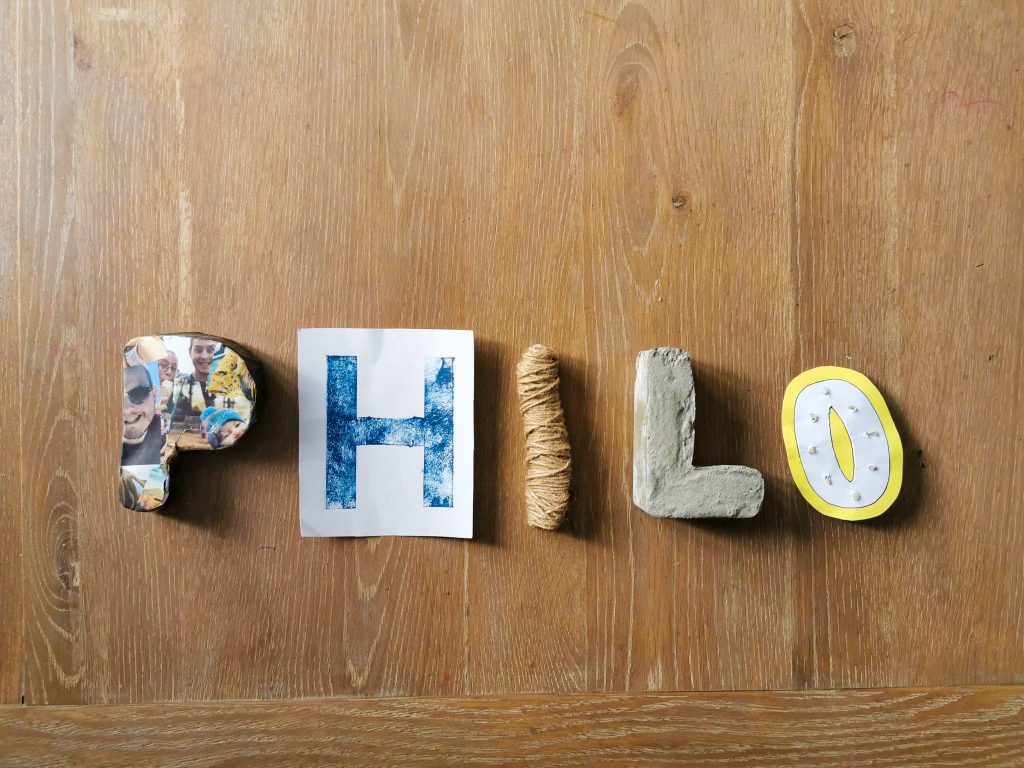
Personal Reflection
This week has been all about the self and identity. What I found fascinating was the amount of influences we have on our identities and how many personas we can inhabit.
I think it would be impossible for someone to say they are the way they are because of their own choices. From birth, we are influenced by our genetic code and as we grow older we become manipulate by the media, our social groups, our work, our socioeconomic standing. While it may feel like the options available to us our many, I fear these factors push us into corner and heavily shapes our decision and future. I suppose this is some sort of version of fate?
I hope that in the many roles I have, father, Graphic Designer, friend, husband etc, I have some form of choice which allows me to be my true self.
The 20 word choices were easy to come up with and the whittling down of them to the final 5 became quite easy. I have chosen 5 words which I think show how I would respond in certain situations. I will always have my family’s best interests in mind and, depending on the situation, will try to be resilient, funny or helpful, while being influenced by the ever-changing state of my mental health.
I decided to use my last name, Philo, as the visual artefact as it is very important to me. It’s fairly unique and over the years of mispronunciation, I have become quite fond of it. In Greek, it means to love and I personally believe I approach decisions in my life with love and passion.
By looking at the artefact as a whole, you really do get a sense of who I am, my identity, me.
References
GIDDENS, Anthony. 1991. ‘The Trajectory of the Self.’ In Modernity and Self-Identity: Self and Society in the Late Modern Age. Cambridge: Polity Press, 70–108.

Leave a Reply